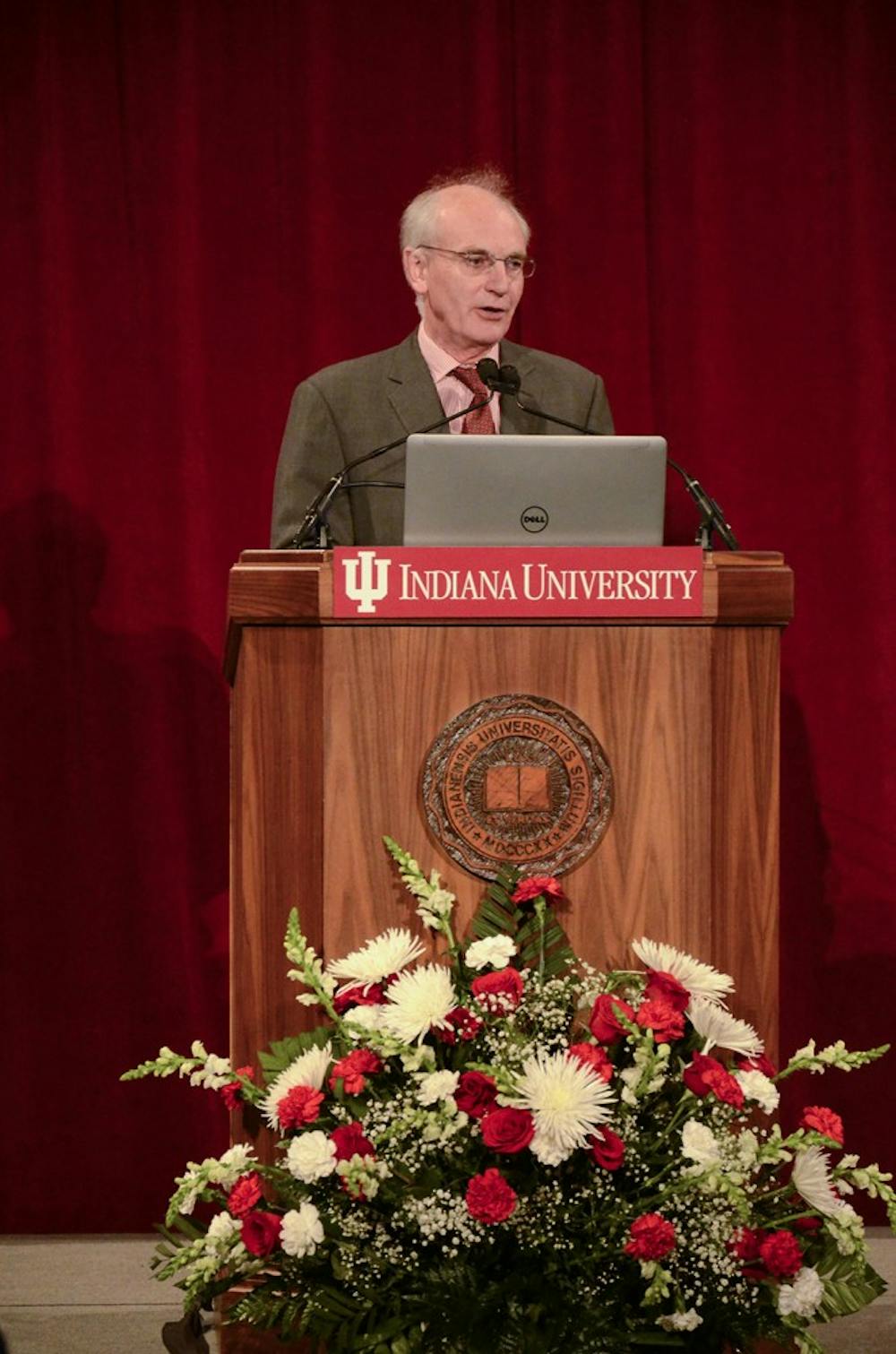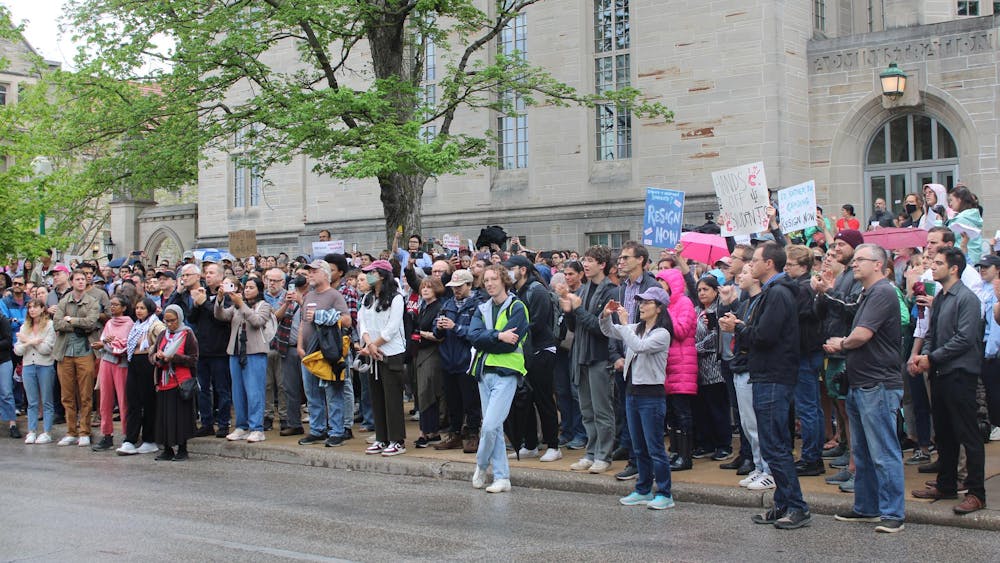Sir Hew Strachan spoke about the centenary of World War I on Wednesday. He focused on the comparisons of perceptions of the end of World War I.
He compared perspectives at the end of the war as a commemoration and as a celebration. This was the fourth lecture in the Patrick O’Meara International Lecture Series, also tying in with “World War I: 100 Years,” IU-Bloomington’s academic-year examination of the enduring legacy and impact of World War I.
Strachan is a professor of international relations in the School of International Relations at the University of St. Andrews. He is a distinguished military historian and an authority on ?World War I.
The lecture opened up with a welcome to the 150-person audience by Andrea Ciccarelli, World War I centennial coordinator and dean of the Hutton Honors College. Following was an introduction to Patrick O’Meara by IU President ?Michael McRobbie.
O’Meara shared some words regarding the major world impact and implications of World War I that traveled across Europe all the way to South Africa, where O’Meara had studied the years following the end of the war.
Strachan started his discussion sharing a quote by Winston Churchhill: “As long as we have faith in our own cause and an unconquerable will to win, victory will not be denied us.”
These words were uttered following the end of World War II. Strachan wanted to show how the conclusion to World War I was different in so many ways.
“There is no Victory Day in Britain,” Strachan said. “Instead we have Armistice Day — a much more ?triumphant title.”
Many people feared the war would resume following the end, anticipating going into the 1920s, Strachan said. The German defeat happened not so much in the battlefield but rather at the negotiating table, ?Strachan said.
Under the terms of the Treaty of Versailles, Strachan proceeded to list all of the war items that were taken and restricted from the Germany army, making it impossible to resume action.
The lecture transitioned into the analysis of the celebration of the end of the war. The original Armistice Day was a day of celebration. Strachan displayed a portrait of the day on Nov. 11, 1918, on Fifth Avenue in New York City, showing vibrant colors and flags of many nations blowing in the wind, to display this notion of festivity.
In 1939, Britain had decided that in order to not lose a working day with the holiday, Armistice Day would move to a Sunday, becoming Remembrance Day. This eventually became a day of commemoration of all who died in war.
“Those who mourned resented those who saw celebration in the day,” ?Strachan said.
At the end of World War I, commemoration and celebration coexisted but no longer became a reality over time, Strachan said.
Looking at perspectives other than Britain’s, Strachan said World War I started to be looked at as a war without any purpose by the war’s 10th anniversary. Strachan referred to the generation that went to war as school boys and came back as adults, adjusting to a world that didn’t look at ?Armistice Day as a party.
“In commemoration, we are trying to honor those who have lost their lives,” Strachan said. “If we say they lost their lives at a lost cause, are we really ?honoring them?”
The lecture concluded sharing the American perspective on the war and how Woodrow Wilson’s influence helped end continuing force. Wilsonian legacy shaped most of the 20th century, Strachan said, by formulating a commitment into a Global Cause in Versailles, France, in 1919.
“If we were to commemorate the centennial, we must understand what the war was and what made the lives lost have meaning,” Strachan said.






